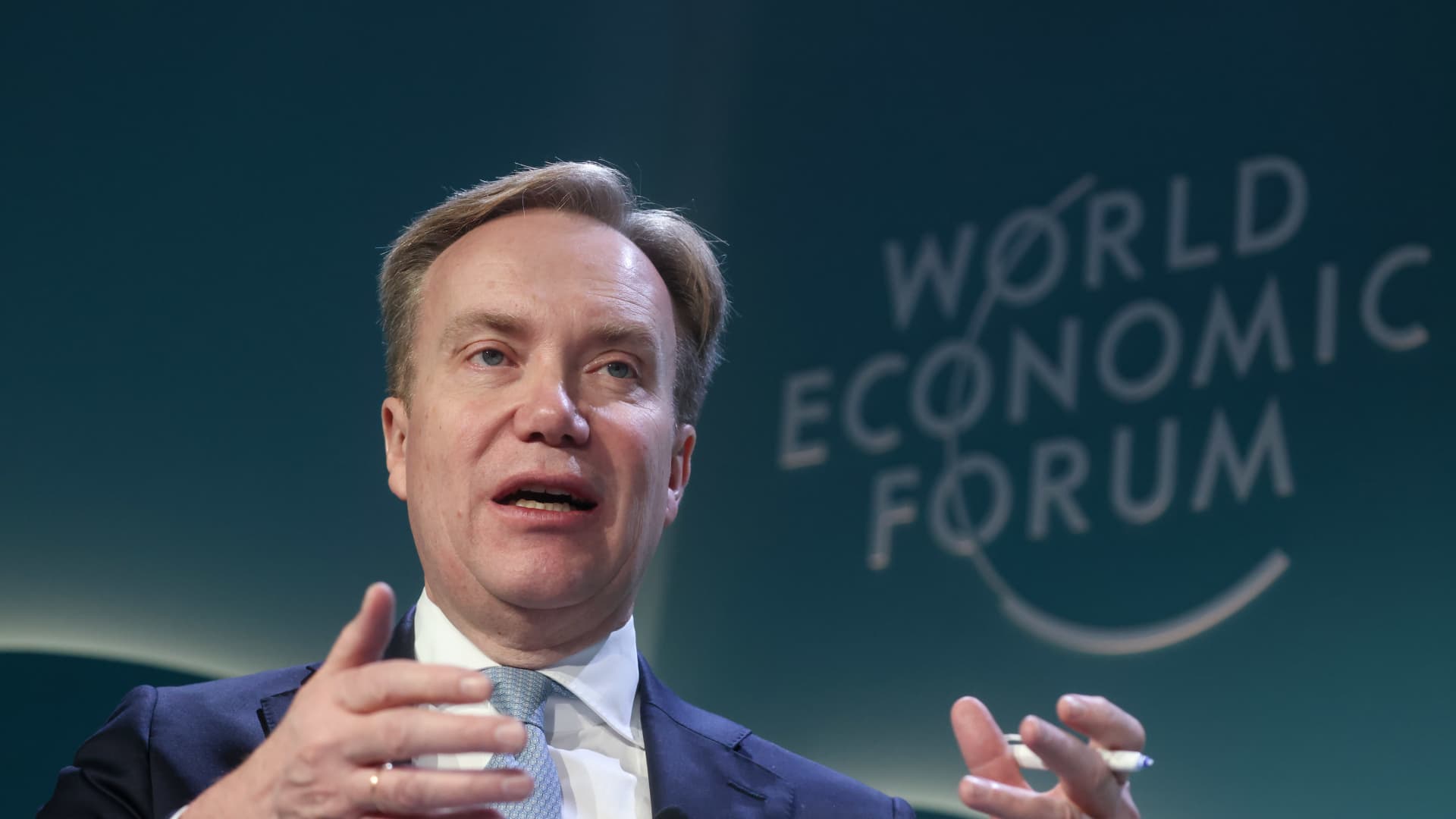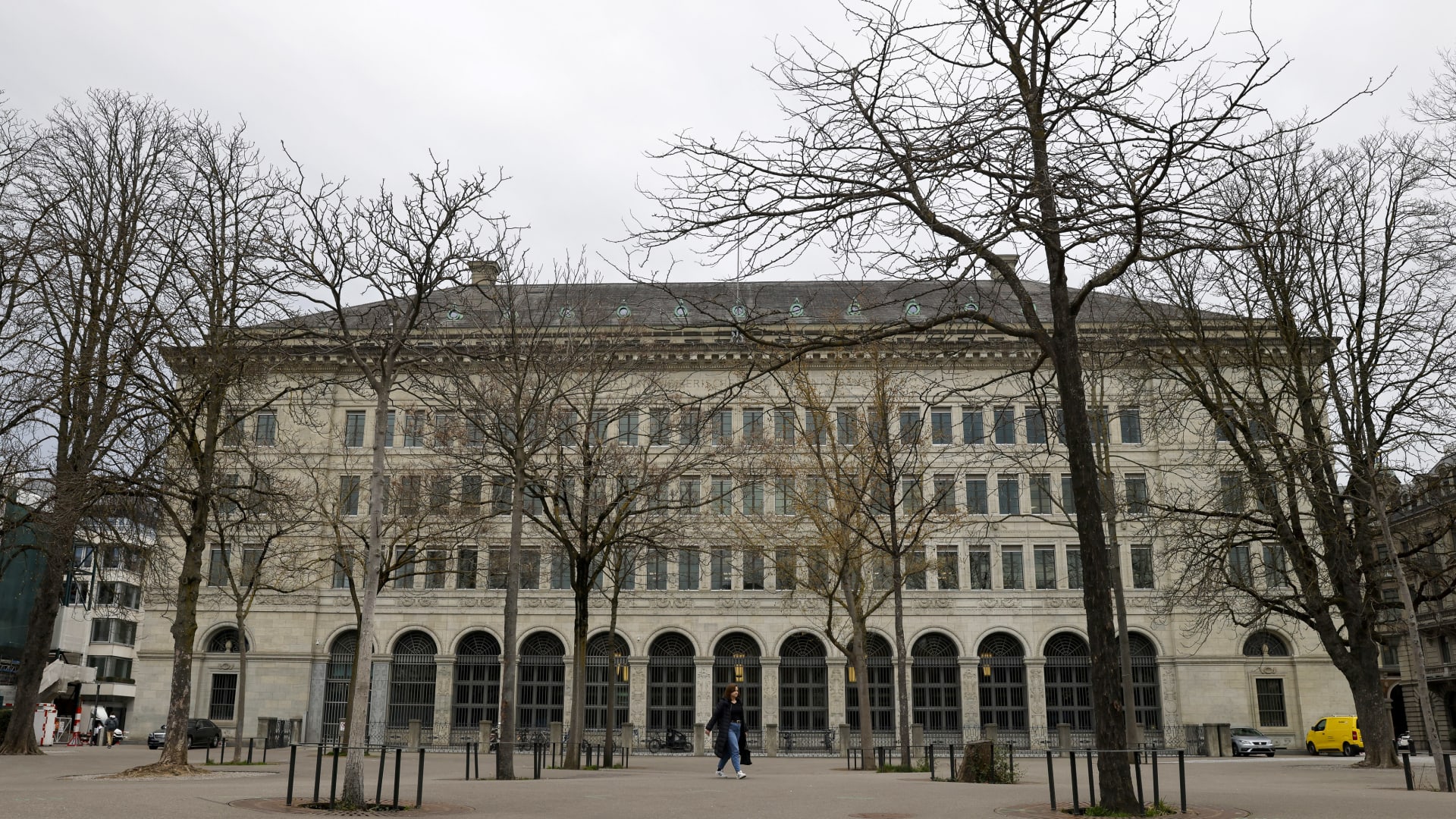The Swiss national flag hangs at the Bundeshaus, the Swiss parliament building, in Bern, Switzerland, on Thursday, December 13, 2018. The Swiss National Bank lowered its inflation forecast and showed no inclination to deviate from its crisis-era settings due to the strength of the franc and growing global risks. Photographer: Stefan Wermuth/Bloomberg via Getty Images
Bloomberg | Bloomberg | Getty Images
The Swiss National Bank surprised the market on Thursday with a decision to cut its key interest rate by 0.25 percentage points to 1.5% and said national inflation was likely to remain below 2% for the foreseeable future.
Economists polled by Reuters had expected the Swiss central bank to keep interest rates at 1.75%.
“Inflation has been below 2% again for a few months and is therefore in the range that the SNB equates with price stability. According to the new forecast, inflation is likely to remain in this range in the next few years,” the bank said. Swiss inflation fell further in February, reaching 1.2%.
The SNB also reduced its annual inflation forecasts. The bank now expects average inflation to reach 1.4% in 2024, below its estimate of 1.9% in December, and 1.2% in 2025, a reduction from the previous estimate corresponds to 1.6%. In its first forecast for 2026, average inflation for that period is estimated at 1.1%.
After the announcement, analysts at Capital Economics said they expect two more rate cuts from the SNB later this year, “with the bank sounding more dovish and inflation likely to be below its forecasts.”
“In fact, we expect inflation to be even lower than the new SNB forecasts suggest, remaining at the current level of 1.2% before falling below 1.0% next year. Accordingly, we forecast that the SNB will cut rates in September. At the December meetings, the key rate was raised to 1%, where we expect it to remain in 2025 and 2026,” analysts at Capital Economics said in a note .
The September meeting is likely to be the last under the leadership of SNB chief Thomas Jordan, who will step down at the end of the month after 12 years at the helm.
The SNB said Swiss economic growth is “expected to remain moderate in the coming quarters,” with GDP expected to grow by about 1% this year.
“Our forecast for Switzerland, as well as for the global economy, is subject to considerable uncertainty. The main risk is weaker economic activity abroad. The momentum on the mortgage and real estate markets has noticeably slowed in recent quarters,” said the SNB. “However, the vulnerabilities in these markets remain.”
At the macroeconomic level, the SNB forecast “moderate” global economic growth in the coming quarters, as well as a likely decline in inflation, partly due to restrictive monetary policies. Nevertheless, “significant risks” and geopolitical tensions were acknowledged that could cloud the international economic horizon.
Blink first
Switzerland is the first advanced economy to cut interest rates after a prolonged period of high inflationary pressures, exacerbated by the impact of the Covid-19 pandemic on global trade and Russia’s war in Ukraine. Switzerland was also hit by turmoil in the banking sector last year when the government stepped in to facilitate UBS’s takeover of fallen rival Credit Suisse.
The Swiss National Bank’s announcement follows a monetary policy decision from the Bank of England, which is widely expected to keep its monetary policy unchanged despite falling inflation.
On Thursday, the Norwegian central bank also refused to leave interest rates unchanged at 4.5%. This came after the US Federal Reserve on Wednesday kept interest rates stable following its March meeting and reiterated its expectations for three rate cuts in 2024.
Source link
2024-03-21 09:50:34
www.cnbc.com










